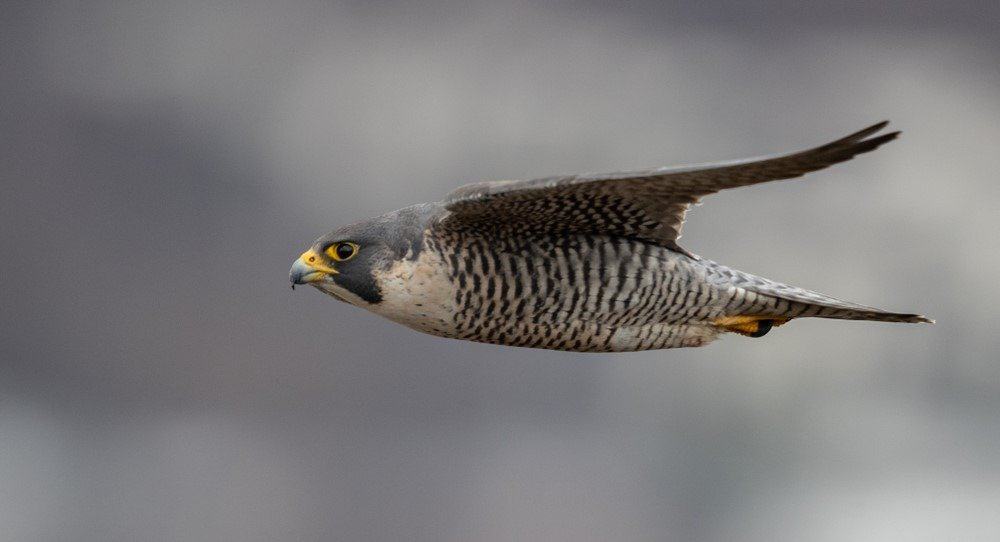Is it possible to race the fastest bird in the world — not on land but in the sky? The skydiver in the video below takes on the challenge. But first, he learns more about how these birds are trained. After a crash course, he sets out into the sky to find out just how fast he can freefall within a 60-second period.
Watch the Incredible Footage Below!
What Is the Fastest Bird In The World?
There are a couple of fast birds in the world, some topping out at speeds up to 200 miles per hour. At one point, the common swift’s speed was remarkable at 70 miles per hour. Both red-breasted mergansers and grey-headed albatrosses top out at 80 miles per hour but they’re beaten by the Eurasian hobby, which can travel up to 100 miles per hour. The white-throated needletail can travel just a tad faster, reaching speeds of up to 105 miles per hour whereas the red-tailed hawk is a flash through the sky at 120 miles per hour. Now, the golden eagle and saker falcon are jaw-droppingly impressive, both able to reach top speeds of 200 miles per hour. But despite this already incredible feat, they don’t even come close to the peregrine falcon which can travel over a remarkable 250 miles per hour.

The Peregrine falcon can travel over 250 miles per hour!
©Harry Collins Photography/Shutterstock.com
How Fast Do Skydivers Freefall?
Skydiving is like the plunge of a rollercoaster, except there is no track, there is no traveling back up, and the heights are incomparable — scratch that. It’s nothing like a rollercoaster! Those moments looking out of the plane are unreal as your brain barely comprehends that you’re looking down at the earth. Those who love an extreme adrenaline rush, they feel most alive just after a skydive, with feelings of invincibility flooding their system. Unless you’ve opted in for this incredible experience, it’s difficult to imagine what it feels like. Within the first three to five seconds, you reach the top freefall speed of 120 miles per hour. Since there is no further acceleration, the freefall is described more as a feeling of floating.
Skydiver Races Falcon
The narrator starts by introducing the peregrine falcon, stating just how fast it can travel. Then he explains his plan that day is to become a bird by jumping out of a plane to see how fast his body drops during a 60-second freefall. Before he shows the final footage, he teams up with the Ohio School of Falconry to learn how they train falcons. After his speed lesson, it’s go time. He gets ready with all the gear he needs and heads over to the plane. He laughs maniacally as he gets ready to board, bird puppet in hand. Watch the video below to see what gets his heart racing once on board!
The photo featured at the top of this post is © iStock.com/rancho_runner
Thank you for reading! Have some feedback for us? Contact the AZ Animals editorial team.







